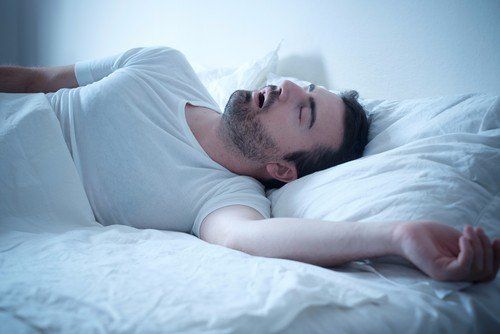How the Dentist Can Help with Snoring
If you wake up first thing in the morning with a dry mouth and a slight
headache, there’s a good chance it could be from snoring. Some estimates
suggest that maybe 30-50 percent of U.S. citizens snore at some point for a
multitude of reasons. If you want to get help for this non-lethal but
inconvenient trait, you can actually consult with your dentist about snoring
and how to avoid it.
What Causes Snoring?
Snoring is basically heavy breathing due to an airway obstruction
while you sleep, usually caused by soft tissue in the mouth or the tongue. According
to the American Dental Association, soft tissues at the top of your airway can
vibrate as you breathe in and out, which is what we know as snoring. This may
occur every night or on occasion. Weight, medication, and sleep position can
all provoke snoring, which is known to cause daytime sleepiness, headaches,
restlessness, and confusion.
Solutions
If you or your partner has been struggling with similar symptoms, you
may need to consult your dentist. He or she may suggest minor lifestyle changes,
surgery, oral appliances, or even enrolling you in a sleep study for analysis.
Losing weight can also lessen the pressure from lying on your back. Even minor
adjustments, such as changing your sleep position, can make a difference. Lying
on your back forces the tongue to rest at the top of airway, so, instead, lie
on your side or stomach to make breathing easier.
Before consulting your dentist, consider any medication you may be
taking. Muscle relaxers or drinking alcohol can make snoring worse—alcohol
consumption should especially be consumed at no more than a moderate amount. Try
to avoid drinking or taking muscle relaxers right before bed or even within three
hours of going to bed. Snoring becomes more likely when your throat muscles are
relaxed.
Smoking can also cause irritation and add further discomfort. Smoke
can inflame tissues of the upper airway and increase snoring. As with drinking,
not smoking for at least several hours before bed can lessen snoring. More
severe cases may involve sleep apnea, a condition where the throat collapses
and stops one’s breathing momentarily. In this case, a continuous positive
airway pressure (CPAP) machine can treat this. The appliance blows air back
into the throat to prevent it from collapsing during sleep.
Oral Health
Better sleep quality can help your teeth and your oral health in more
ways than one. Getting a proper amount of rest throughout the night gives you
enough energy to properly take care of your teeth day and night. When you're
well rested, you’re also less likely to wake up with dry mouth. Bacteria tends
to thrive when there is a lack of saliva, and this can worsen dental problems. So,
you can consult your dentist about getting a night guard or using other
positive methods to help with snoring and improve you or your partner’s quality
of sleep.
Did you know that you can save up to 20 percent off your
dental bills with our discount dental plans
? We offer individual,
family, and employee plans for small business owners. To learn more, click here.
Photo via Shutterstock.com











